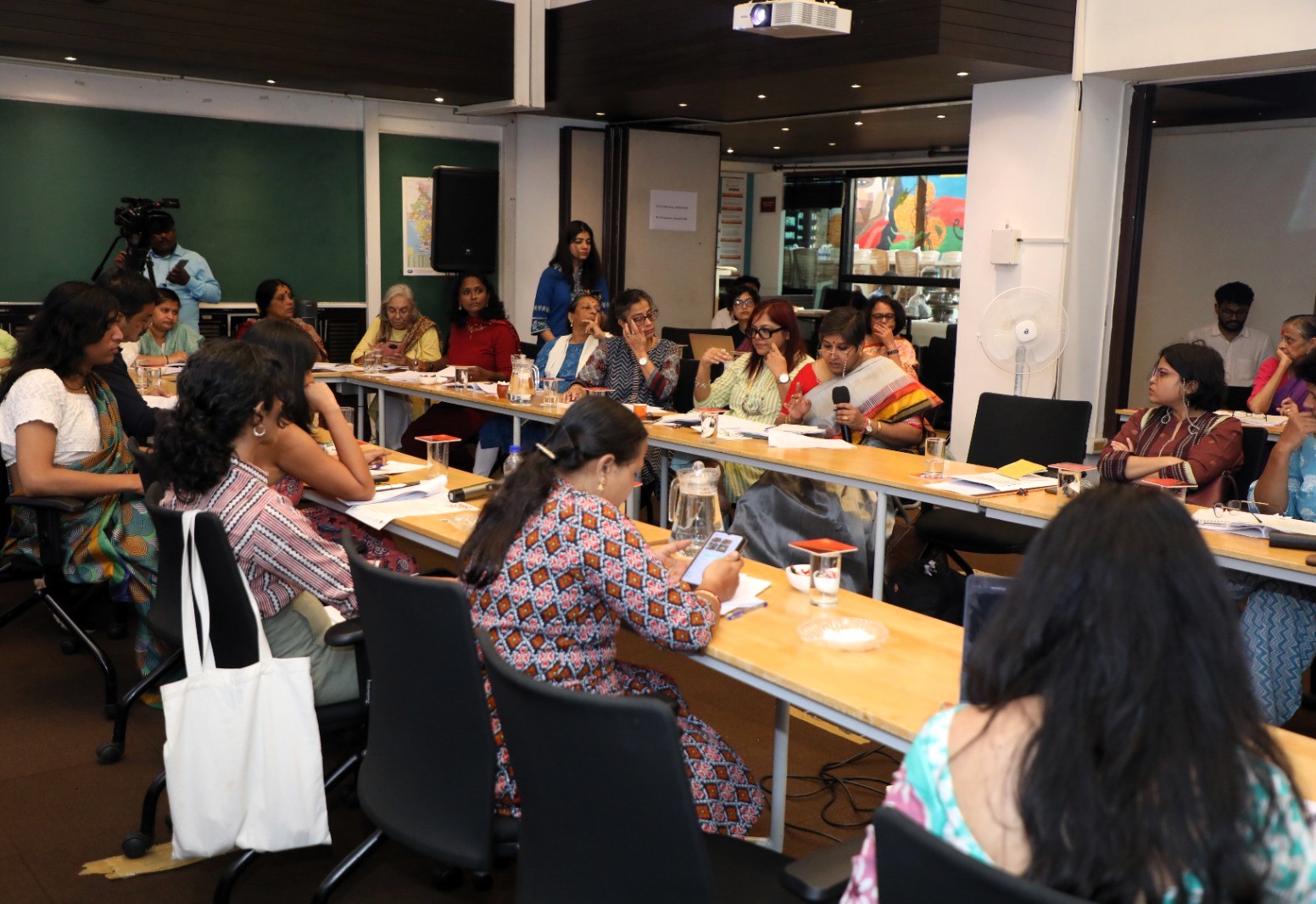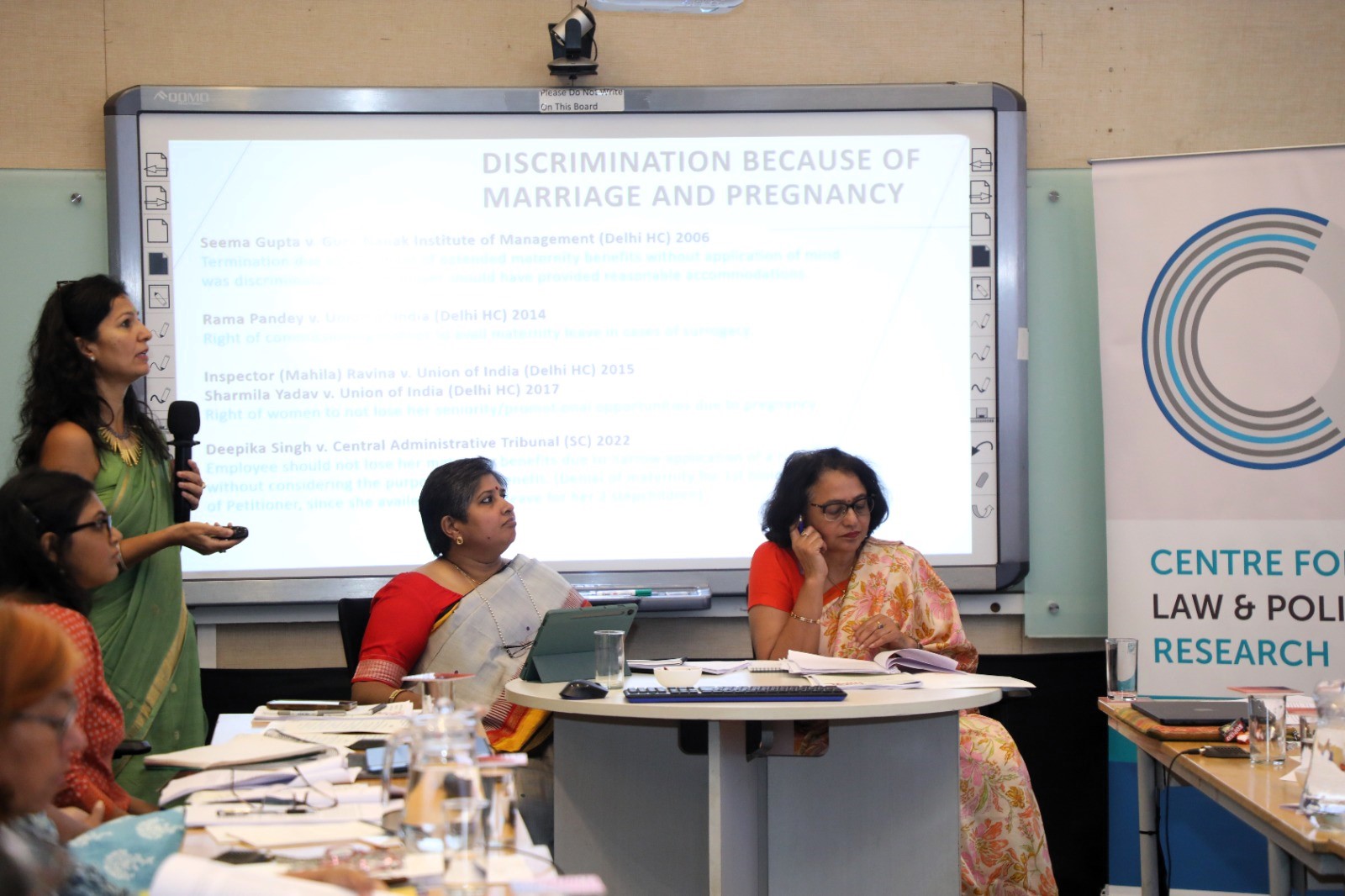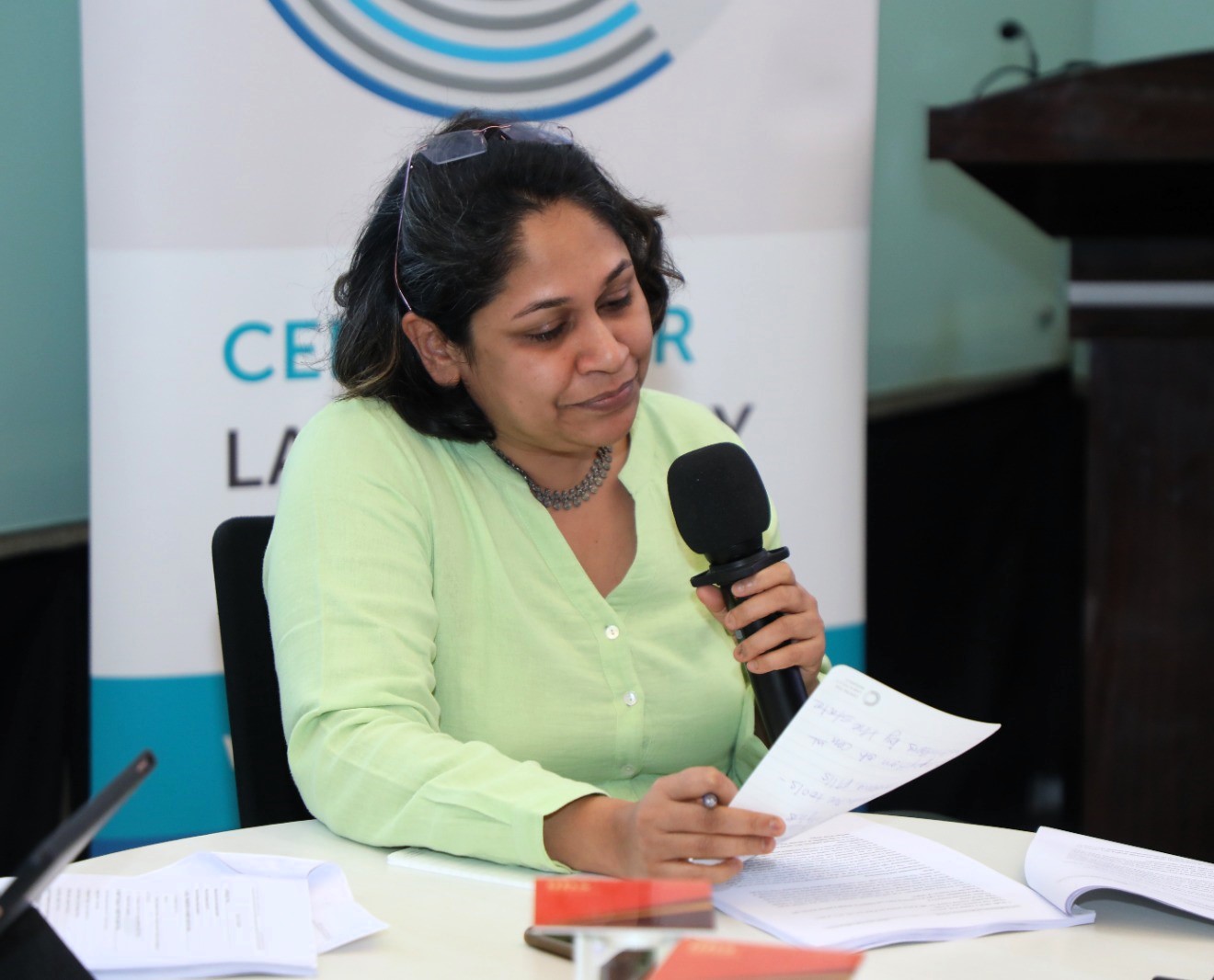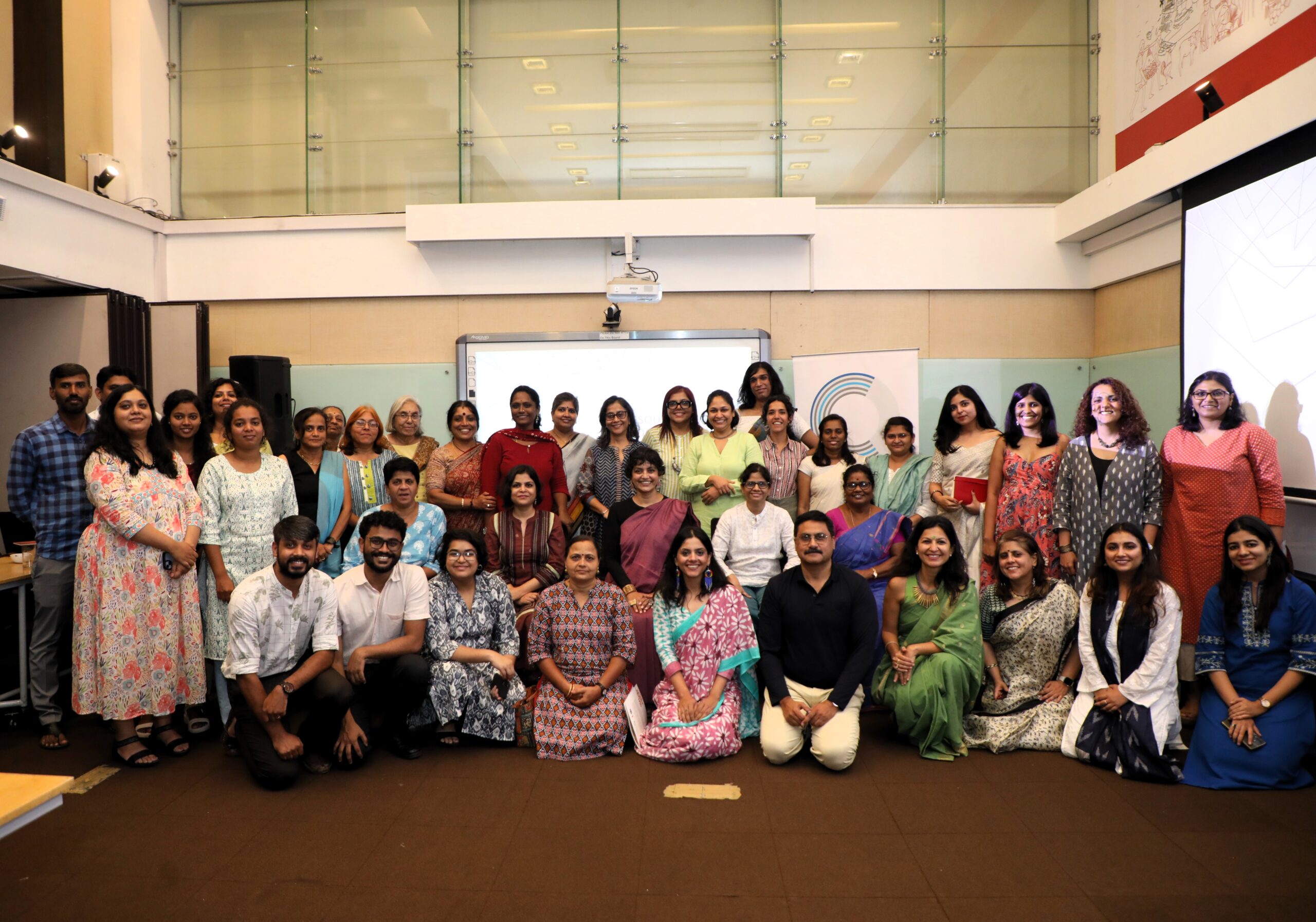On October 26th, 2024 the Centre for Law and Policy Research (CLPR) organised a National Consultation on Resource Book on Women’s Rights Judgments in India. The Consultation was held at the Indian Institute for Human Settlements (IIHS), Bengaluru, and brought together leading women’s rights activists, academics, and lawyers to provide their feedback on the first draft of the resource book. This publication is part of a series by the CLPR with support from the German Embassy, which aims to compile the most important High Court and Supreme Court judgments on women’s rights in India. This resource book aims to serve as a legal literacy tool for community groups and organizations, legal practitioners, academics, and laypersons by ensuring they have access to important judgments.

The Consultation began with Jayna Kothari (Executive Director of CLPR and Senior Advocate) giving the introductory remarks and outlining the development and objectives of the Resource Book. This was followed by five thematic sessions. The first session focussed on Constitutional Rights for Women, Nithya Rajshekhar (Senior Research Associate, CLPR) led the session with an analysis of constitutional cases concerning equality, dignity, and autonomy of women. Key cases presented included Independent Thought v. Union of India (addressing marital rape within child marriages), Joseph Shine v. Union of India (decriminalizing adultery), and Indian Young Lawyers Association v. State of Kerala (Sabarimala temple entry case). Discussants Jhuma Sen, Advocate and Researcher and Prof. Dr. Sameena Dalwai emphasized refining the thematic organization of the resource book, suggesting more distinct categorization to address overlapping rights areas like employment equality and workplace harassment. Prof. Dalwai proposed adding a “Critique” section to examine each case’s larger impact on women’s rights and recommended summarizing key takeaways from each case for lay persons. They also spoke about emphasizing the socio-political context surrounding these cases.

The second session was on Employment, Marriage, and Pregnancy Related Discrimination, Ms. Kothari presented cases under employment and gender discrimination, including Uttarakhand Mahila Kalyan Parishad v. State of Uttar Pradesh (equal pay rights for female teachers) and Anuj Garg v. Hotel Association of India (challenging gender stereotypes in employment). Discussants Anandita Pujari and Geetha Devi sought clarity on the resource book’s target audience, proposing adjustments based on whether it serves as a feminist jurisprudence project or a general compilation. Devi advocated for including international standards like CEDAW to establish normative expectations. The discussion also underscored the importance of inclusion of issues concerning informal sector workers.
The third session focused on Sexual Harassment at the Workplace, Jayna Kothari presented significant cases on workplace sexual harassment, such as Vishaka v. State of Rajasthan (establishing workplace harassment guidelines) and Apparel Exports Promotion Council v. A.K Chopra (defining sexual harassment under a broad interpretation). Discussants Albertina Almeida and Renu Mishra emphasized providing social, historical, and legal context for each case. Almeida suggested critiquing the Prevention of Sexual Harassment (POSH) Act’s effectiveness, while Mishra noted the overlap of civil and criminal law in workplace harassment cases. They recommended including insights into enforcement challenges, particularly the judicial accountability needed for POSH provisions.

In the fourth session on Personal Law, Family, and Property Rights, Nithya presented cases concerning family and property rights, including Mary Roy v. State of Kerala (equal inheritance rights for Christian women) and Shayara Bano v. Union of India (invalidating triple talaq). Hasina Khan and Audrey D’Mello highlighted the importance of contextualizing personal law cases within a socio-political framework, especially regarding the rights of Muslim women. Participants recommended expanding the family law section to include cases across cultural contexts and adding community-specific legal interpretations.
The final session was on Sexual and Reproductive Rights, Disha covered cases on reproductive rights, such as Suchita Srivastava v. Chandigarh Administration (reproductive autonomy for women with disabilities) and Devika Biswas v. Union of India (addressing mass sterilizations). Discussants Shreya Munoth and Adsa Fatima advocated for simpler language and the inclusion of lesser-known cases to broaden perspectives. They suggested organizing cases around themes such as autonomy and health, while Munoth noted the growing discourse around the rights of the unborn and recommended future implications be explored in a separate section.

The consultation provided invaluable insights to refine the resource book’s structure and content. Key suggestions included adding a glossary for legal terminology, revising the thematic organization of chapters, and incorporating critiques to elucidate the broader impact of judgments on women’s rights. Participants emphasized the importance of diverse case representation, recommending cases from different regions to enhance the book’s scope. The “Significance” section was suggested to highlight each judgment’s implications for the legal protection of women. The final Resource Book on Women’s Rights Judgments, expected to be published later this year, aims to serve as an essential resource for legal literacy, advocacy, and advancing women’s rights in India.

